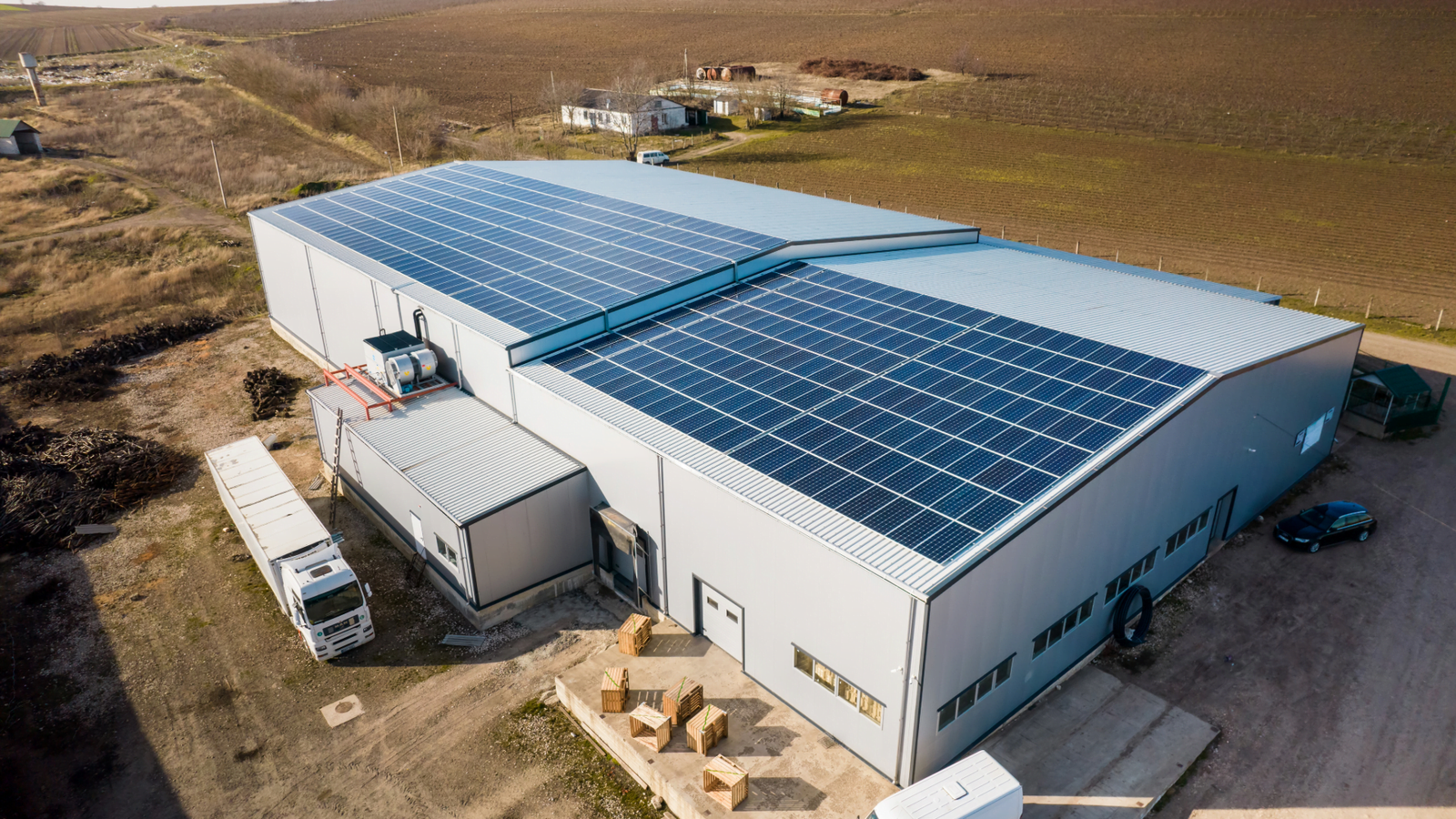Are Solar Panels Ideal for Warehouses?
Solar panels, first developed in the 1950s, have evolved into one of the most efficient and sustainable sources of renewable energy. These photovoltaic systems convert sunlight directly into electricity, providing a clean and renewable energy source. One of the most practical applications of this technology is the installation of solar panels on warehouses. These structures, with their vast, flat rooftops, are ideally suited for solar power generation, providing numerous operational and economic benefits. Here, we explore how Solar Panels for Warehouses can revolutionize the logistics and storage sector.

Warehouses are uniquely positioned to benefit from solar panel installations due to their large, unobstructed rooftops. These expansive surfaces are perfect for accommodating extensive solar arrays, maximizing energy capture and efficiency. The energy generated can power the warehouse’s lighting, cooling systems, and operational equipment, significantly reducing reliance on traditional power grids and cutting operational costs.
Saudi Arabia: Optimal Conditions for Solar Power
Saudi Arabia, with its vast deserts and abundant sunshine, is exceptionally well-suited for solar energy utilization. The country receives some of the highest levels of solar radiation globally, making it an ideal location for solar panel installations. This natural advantage, combined with the country’s commitment to renewable energy, positions Saudi Arabia as a leader in the solar energy sector. Warehouses in Saudi Arabia can particularly benefit from this abundant solar resource, achieving both operational efficiency and significant cost savings.
Operational Benefits of Solar Panels for Warehouses
- Energy Independence: One of the most significant advantages of installing solar panels on warehouses is achieving energy independence. Warehouses in remote areas or regions with unreliable grid connectivity can benefit immensely from generating their own power, ensuring uninterrupted operations and mitigating the risks associated with power outages.
- Reduced Operational Costs: Solar energy can offset a substantial portion of a warehouse’s energy consumption. By generating their own electricity, warehouses can drastically reduce their utility bills. In regions with high electricity tariffs, such as the GCC, these savings can be substantial, improving overall profitability.
- Sustainability and Environmental Impact: Utilizing solar panels helps reduce carbon emissions, aligning with global sustainability goals. For companies looking to enhance their corporate social responsibility (CSR) profiles, investing in solar energy is a tangible commitment to environmental stewardship, benefiting the planet and enhancing the company’s reputation among environmentally conscious consumers and stakeholders.
- Enhanced Resilience: Solar panels provide a reliable and consistent source of energy during peak sunshine hours. This can significantly reduce reliance on the grid, offering an auxiliary power source that ensures critical operations remain unaffected by external power supply issues. This resilience is particularly valuable for cold storage facilities and other temperature-sensitive operations, where maintaining a stable energy supply is crucial.
Economic Benefits of Solar Panels for Warehouses
- Cost Savings: The primary economic benefit of installing solar panels is the reduction in electricity costs. Over time, the continuous reduction in energy expenses can effectively balance out the upfront costs associated with installing solar panels, leading to substantial long-term financial benefits. Additionally, in many regions, governments offer incentives, tax breaks, and subsidies for businesses that adopt renewable energy solutions, further reducing the financial burden.
- Increased Property Value: Properties equipped with renewable energy solutions, such as solar panels, often see an increase in market value. For warehouse owners, this can translate into higher rental rates and improved resale value. Potential buyers and tenants are increasingly prioritizing sustainability, making solar-equipped warehouses more attractive.
- Attractive ROI: The return on investment (ROI) for solar panel installations is generally favorable. With decreasing costs of solar technology and increasing efficiency, the payback period for solar investments is becoming shorter. Businesses can start to see financial benefits within a few years of installation.
- Job Creation and Local Economy Boost: Installing and maintaining solar panels creates jobs and stimulates the local economy. From manufacturing to installation and maintenance, the solar industry provides numerous employment opportunities, contributing to economic growth.
Overcoming Challenges and Leveraging Opportunities
While the benefits of installing solar panels are prominent, there are some challenges to consider. The initial investment in solar panel installation can be significant. However, this can be mitigated by various financing options, government incentives, and subsidies aimed at encouraging renewable energy adoption. Maintenance is another consideration, as solar panels require periodic cleaning and upkeep to ensure optimal performance, especially in dusty environments like the GCC. However, the long-term benefits and savings often outweigh these maintenance costs, making solar panels a smart and sustainable investment for warehouses.
Embrace Solar Panels for a Sustainable Future
The integration of Solar Panels for Warehouses offers a pathway to significant operational and economic benefits. From cost savings and energy independence to sustainability and increased property value, the advantages are compelling. As the world continues to embrace renewable energy, the adoption of solar panels on warehouse rooftops will play a crucial role in shaping a more sustainable and efficient future. By investing in solar energy, warehouses can lead the way in the transition to green energy, setting a practical example for industries worldwide.

